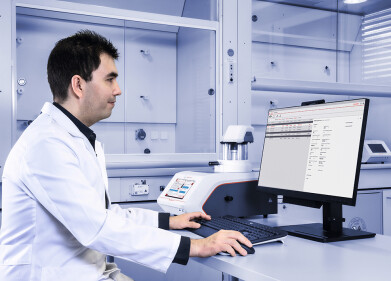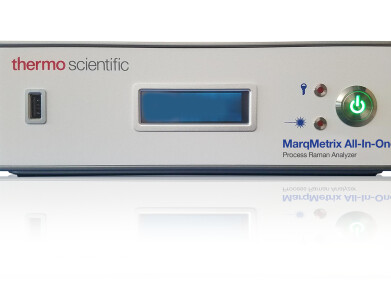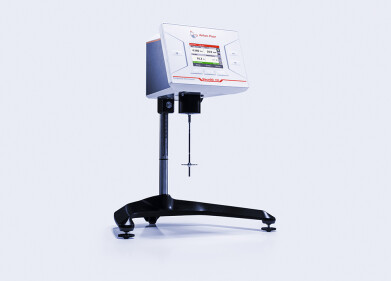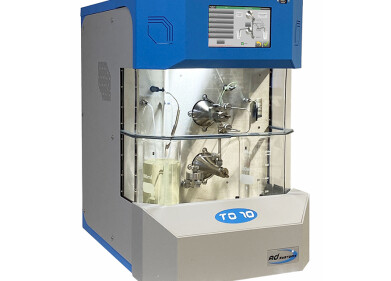Analytical instrumentation
Laboratory Viscometer Reaches Higher Temperatures
Feb 12 2010
Viscosity specialist Hydramotion Ltd (UK) is pleased to announce an important extension to its ReactaVisc RV3 range of laboratory benchtop viscometers. Ideal for monitoring oil viscosity in the lab, the new ReactaVisc RV3-HT1 can be used at temperatures up to 250°C without requiring any special cooling. Efficient design ensures that sensitive components in the head enclosure are protected from overheating, even though the sensor probe itself is at full fluid temperature. The advantage is that there is no risk of measurement errors resulting from the viscosity changes that would be caused by localised cooling of the fluid around the sensor.
Although robust, the ReactaVisc is light enough to be fitted to a standard reaction vessel without requiring additional support. The compact enclosure takes up minimal space at the top of the vessel, leaving plenty of room for ancillary equipment, e.g. for stirring or temperature measurement. The sensor is a solid probe with no moving parts, bearings or seals that could wear out or fail in service, so routine maintenance is not required.
Viscosity is measured every two seconds and displayed on the separate VP550 signal processor unit included in the system. Output includes a 4 - 20 mA analogue viscosity signal and an RS485 serial data link. The optional ViscoLink software package enables measurement data to be logged and transferred to a PC for analysis.
The ReactaVisc is supplied with a fitting consisting of a compression nut plus an adaptor made to suit the desired installation. The shaft is passed through the adaptor and the compression nut is hand-tightened at the required position, forming an effective seal. The immersion depth is adjusted simply by loosening the fitting, moving as required, and retightening. The whole operation can be completed in seconds. This versatile feature enables the immersion depth of the sensor can be adjusted at will, making it easy to use the viscometer in differing volumes of fluid or in vessels of varying capacity. No recalibration is needed when the viscometer is
transferred from one vessel to another, since calibration is unaffected by the volume of fluid or the dimensions of the container. Shipped ready for immediate use, the ReactaVisc can be in place and working within minutes of being unpacked.
Digital Edition
PIN 25.6 Buyers' Guide
January 2025
Buyers' Guide Directory - Product Listings by Category - Suppliers Listings (A-Z) Articles Analytical Instrumentation - ASTM D7042: The Quantum Leap in Viscosity Testing Technology -...
View all digital editions
Events
Jan 20 2025 San Diego, CA, USA
Jan 22 2025 Tokyo, Japan
Jan 25 2025 San Diego, CA, USA
SPE Hydraulic Fracturing Technology Conference and Exhibition
Feb 04 2025 The Woodlands, TX, USA
Feb 05 2025 Guangzhou, China



















